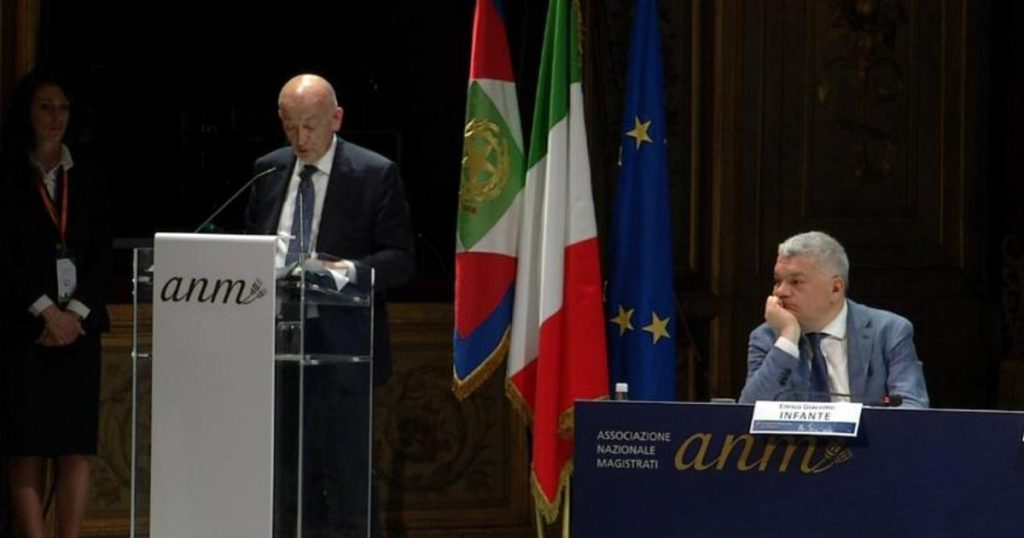The National Congress of the National Magistrates’ Association was marked by a heated dialogue between opposing positions, as described by Justice Minister Carlo Nordio. The minister arrived in Palermo to reiterate that the government has the mandate of the citizens to proceed with judicial reform. However, the magistrates, representing various factions, strongly oppose the reform, particularly the separation of careers, which the Democratic Party’s secretary Elly Schlein vehemently rejects. She argues that it could lead to the submission of magistrates to the executive branch. The political atmosphere at the congress becomes tense, with Schlein criticizing the government’s reform plan as a threat to the balance of powers, indirectly referencing Deputy Prime Minister Matteo Salvini’s recent comments about wiretaps on magistrates’ offices. The magistrates also reject what they see as attacks aimed at discrediting the entire judiciary.
The ongoing judicial case in Liguria was a topic of discussion at the congress, with the leader of the League party criticizing magistrates as a privileged class. He emphasized the slow pace of justice and the economic consequences of lengthy investigations, warning against any attempts to hinder the country’s development. On the other hand, the Minister of FDI Francesco Lollobrigida also mentioned the case, questioning the timing of the investigation closing shortly before the elections. Prime Minister Giuseppe Conte expressed concern about the alleged nexus between politics and business in Genoa, while Elly Schlein called for the resignation of the President of Liguria. She stood by the magistrates, accusing the government of displaying a muscular and aggressive attitude towards the judiciary. The proposed justice reform, autonomy, and the role of the prime minister were all criticized for undermining constitutional principles.
At the congress, Matteo Renzi from Italia Viva acknowledged the role of politics in the ongoing conflict with the judiciary, criticizing the notion that receiving a notice of investigation should result in resigning. He called for an end to the long-standing conflict between politics and the judiciary and supported Enrico Costa’s statement that career separation would not happen. The Justice Minister also addressed concerns about the reform’s timeline, stating that the government remained committed to its implementation while emphasizing the judiciary’s independence. Despite attempts to reassure the audience, questions remain about the government’s intentions regarding the separation of careers and the judiciary’s autonomy, with some expressing skepticism about Minister Nordio’s references to European standards in the reform process.
Overall, the National Magistrates’ Association congress was characterized by sharp divisions between the government’s push for judicial reform and the strong opposition from the judiciary and political figures like Elly Schlein and Matteo Renzi. The issue of the separation of careers within the judiciary remained a contentious topic, with doubts about the government’s commitment to maintaining the judiciary’s independence. The debate also highlighted concerns about the political interference in judicial matters, with accusations of attempts to undermine the judiciary’s credibility and autonomy. Despite reassurances from the Justice Minister, tensions between the government and the judiciary persist, reflecting broader challenges surrounding the balance of power and the rule of law in Italy.


